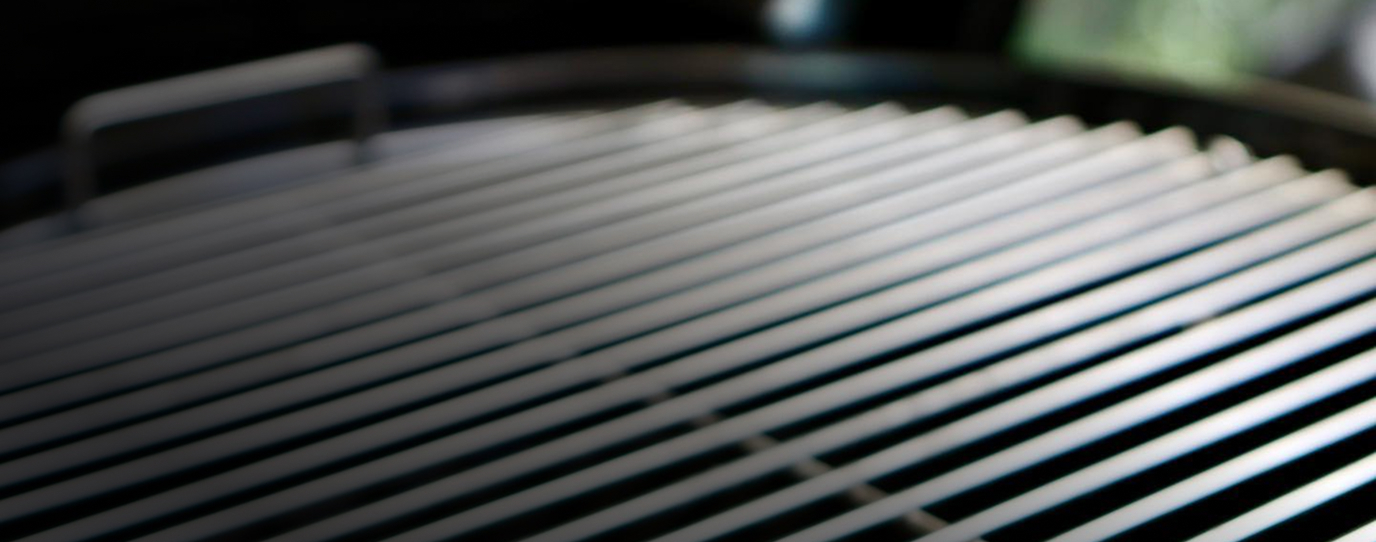You probably know that seasoning your meat makes for the best grilled meals, but did you know seasoning your grill is just as important? Seasoning your grill is important – it enhances performance and longevity so you can enjoy your grill year after year. Here’s how to season your grill and why it matters:
Why Seasoning Your Grill Matters
Seasoning a grill isn’t just about upkeep—it’s about creating the best possible cooking experience. Seasoning your grill:
- Prevents rust – A seasoned grill is less prone to corrosion.
- Improves non-stick properties – Helps food release easily from the grates.
- Enhances flavor – Over time, seasoning builds up layers of smoky goodness.
- Extends grill lifespan – Protects your investment for the long haul.
How to Season a New Grill
If you’ve just unboxed a brand-new grill, seasoning it before first use is essential. Here’s how:
Step 1: Clean the Grates
Even though it’s new, your grill may have factory coatings, dust, or debris. Wash the grates with warm, soapy water, rinse thoroughly, and dry completely to make sure none of that ends up in your next grilling masterpiece.
Step 2: Coat with Oil
Using a high-heat cooking oil like canola, grapeseed, or vegetable oil, lightly coat the grates. You can do this by pouring oil onto a paper towel and using tongs to rub it evenly over the surface. Try to avoid using excess oil, as this can cause flare-ups.
Step 3: Heat the Grill
Turn the grill to high heat (around 400–450°F) and let it run for about 30–60 minutes. When the oil you’ve applied heats to this temperature, it bakes the oil which forms a protective layer on the grates. You may notice some smoke—this is normal as the oil bonds to the metal.
Step 4: Let It Cool
Once the grill has finished seasoning, turn it off and allow it to cool completely. Your grill is now ready for cooking!
How to Re-Season an Old Grill
If your grill has seen better days, re-seasoning can restore its performance and prevent further wear so you can use it for many more years. Here’s what to do:
Step 1: Deep Clean the Grates
Use a grill brush or scraper to remove any burnt-on residue. If needed, soak the grates in warm, soapy water and scrub them clean. Rinse and dry thoroughly.
Step 2: Remove Rust (If Necessary)
Sometimes, a grill that’s been outside for years collects moisture, and eventually, rust. For rusty spots, use a ball of aluminum foil or a grill stone to scrub away corrosion. If the rust is more severe and hard to remove, a vinegar and baking soda soak may help loosen it.
Step 3: Oil and Heat
Just like seasoning a new grill, apply a thin layer of high-heat cooking oil, then heat the grill to high for 30–60 minutes.
Step 4: Maintain Regularly
To keep your grill in top shape, lightly oil the grates after each use and give it a deeper seasoning session every few months. Keeping your grill covered during colder months and
Keep the Flame Alive
Seasoning your grill is a simple but essential step for better grilling. Whether you’re firing up a brand-new Weber or revitalizing an old classic, a well-seasoned grill will deliver better flavor, better performance, and a longer lifespan.
Once your grill is seasoned, here’s some delicious recipes to inspire your next meal.
